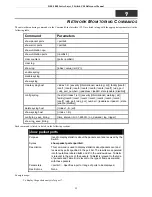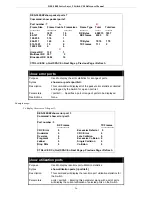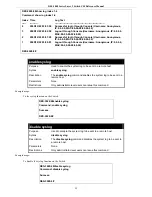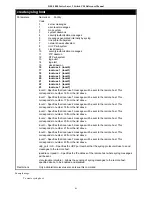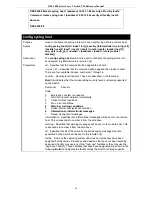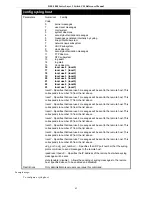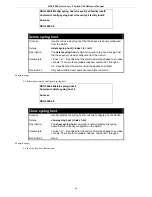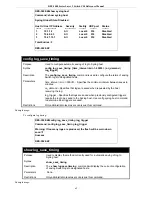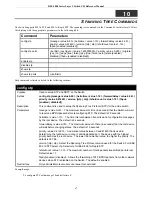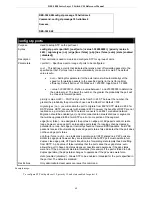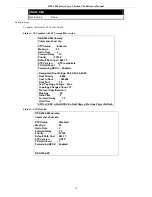
DES-3000 Series Layer 2 Switch CLI Reference Manual
9
N
ETWORK
M
ONITORING
C
OMMANDS
The network monitoring commands in the Command Line Interface (CLI) are listed (along with the appropriate parameters) in the
following table.
Command Parameters
show packet ports
<portlist>
show error ports
<portlist>
show utilization cpu
show utilization ports
{<portlist>}
clear counters
{ports <portlist>}
clear log
show log
{index <value_list X-Y>}
enable syslog
disable syslog
show syslog
create syslog host
<index 1-4> {severity [informational | warning | all] | facility [local0 |
local1 | local2 | local3 | local4 | local5 | local6 | local7] | udp_port
<udp_port_number> | ipaddress <ipaddr> state [enable | disable]}
config syslog
{host [all <index 1-4>]} {severity [informational | warning | all] |
facility [local0 | local1 | local2 | local3 | local4 | local5 | local6 |
local7] | udp_port <udp_port_number> | ipaddress <ipaddr> | state
[enable | disable]}
delete syslog host
[<index 1-4> | all]
show syslog host
{<index 1-4>}
config log_save_timing
[time_interval <min 1-65535> | on_demand | log_trigger]
show log_save_timing
Each command is listed, in detail, in the following sections.
show packet ports
Purpose
Used to display statistics about the packets sent and received by the
Switch.
Syntax
show packet ports <portlist>
Description
This command is used to display statistics about packets sent and
received by ports specified in the port list. The results are separated
into three tables, labeled
A
,
B
, and
C
in the window above. Table
A
is relevant to the size of the packets, Table
B
is relevant to the type
of packets and Table
C
is relevant to the type of frame associated
with these packets.
Parameters
<portlist>
−
Specifies a port or range of ports to be displayed.
Restrictions None.
Example usage:
To display the packets analysis for port 7:
55















